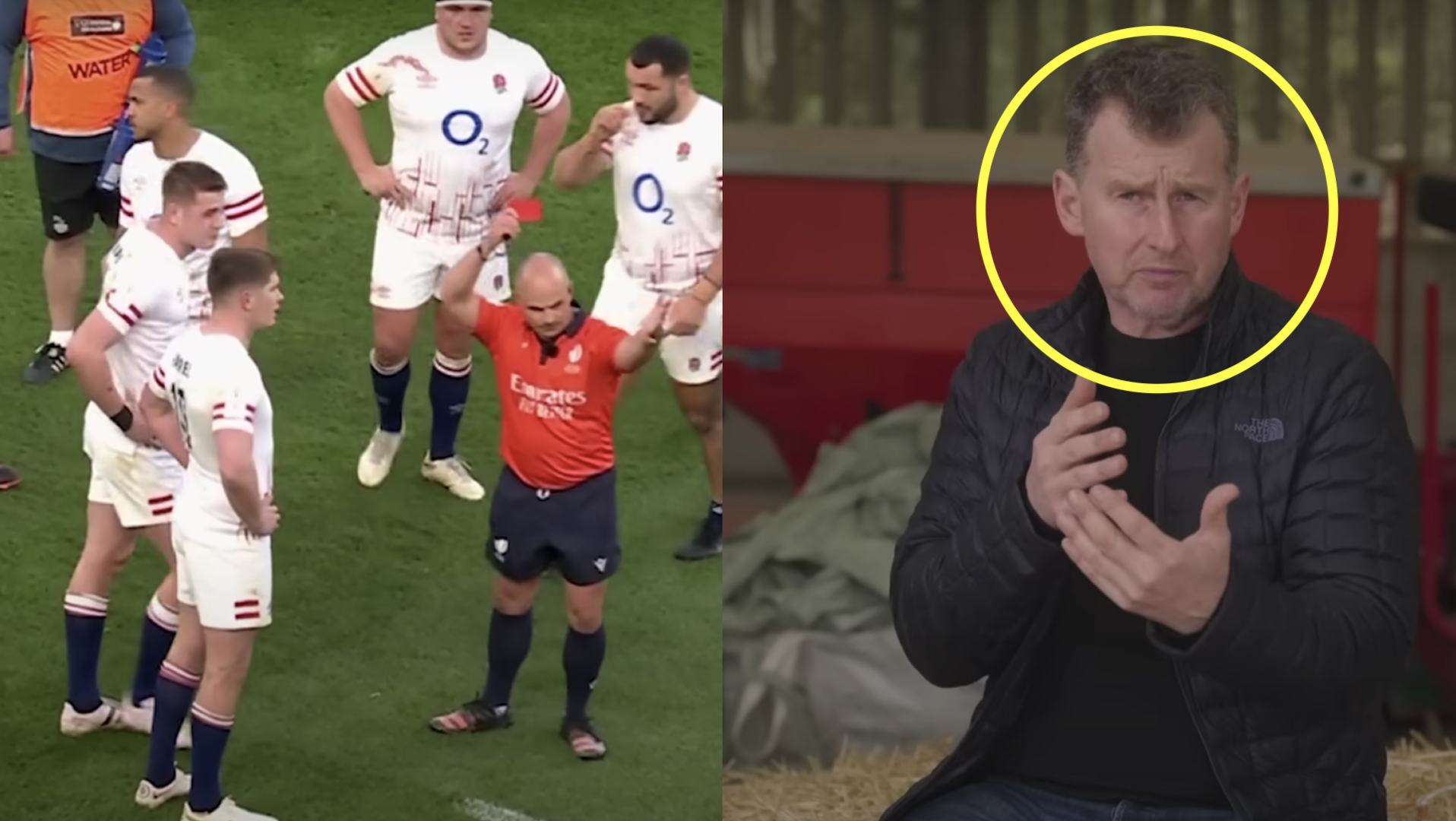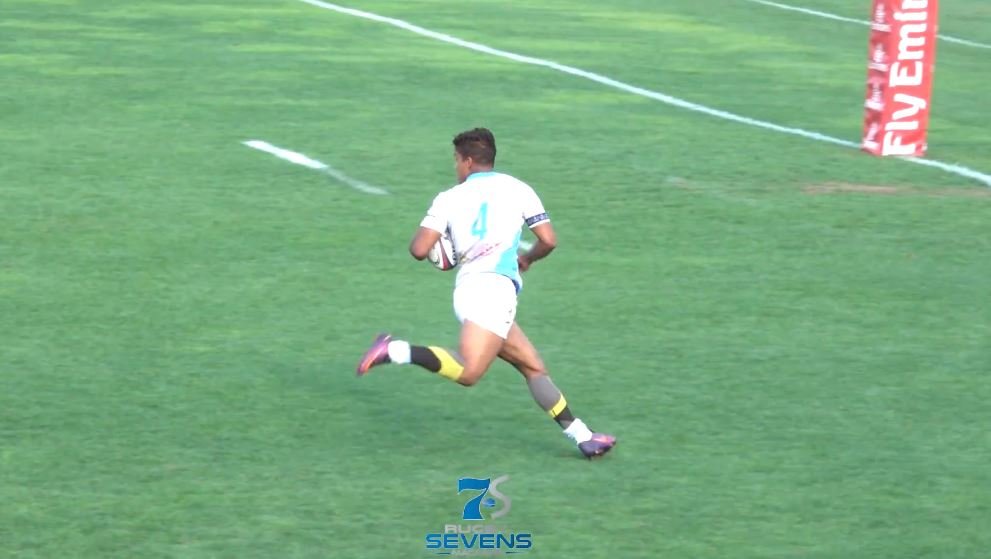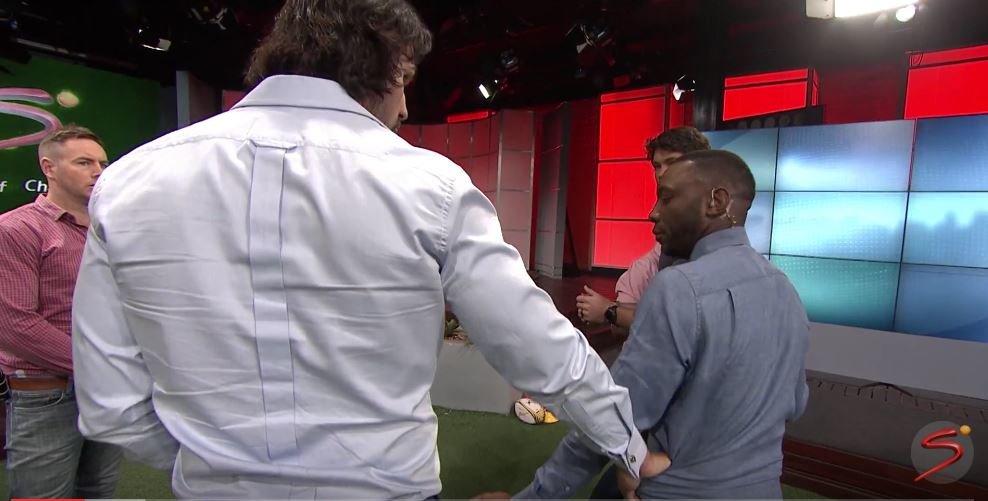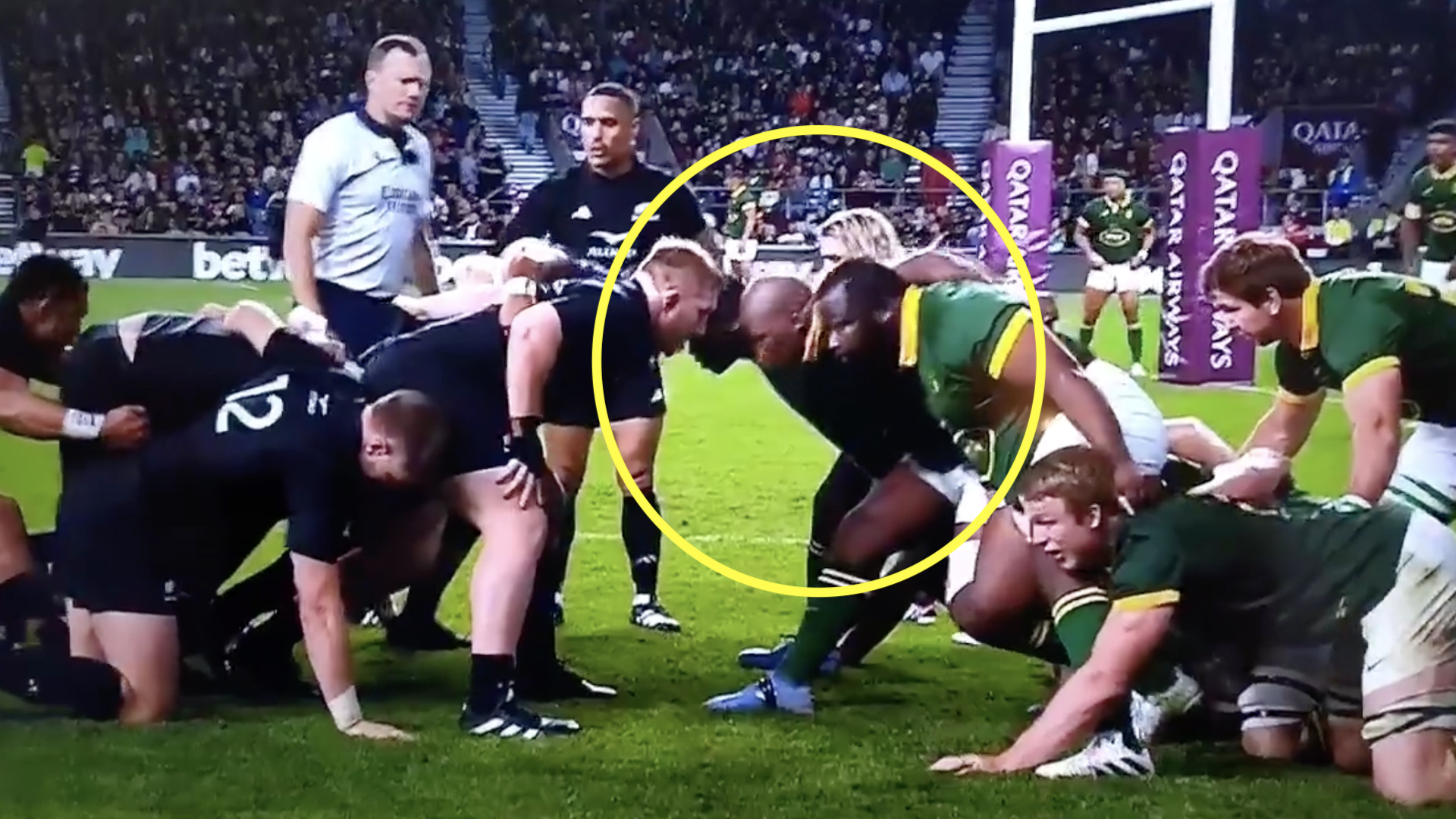
Nigel Owens’ unexpected verdict on Freddie Steward’s red card
In a world where one section of the rugby community either firmly supports the decision to give England’s Freddie Steward a red card on Saturday or the other section is firmly against it, former Test referee Nigel Owens has bucked the trend.
In World Rugby’s latest episode of Whistle Watch, the refereeing legend has seen both sides of the debate, and believes there is a lot of reason in both. While he looks to side with Jaco Peyper’s decision to send off the England fullback following his collision with Irish counterpart Hugo Keenan, he suggests he would not have disagreed if it was a yellow card either.
The Welshman emphasised that he is not sitting on the fence though, rather saying that this is “the game of rugby.” Decisions can go either way and there is not necessarily a definitive right or wrong decision. While Peyper and Owens support one decision, the independent panel rescinded the red card this week. These differences of opinion are probably what make rugby so interesting, and equally frustrating at times.
“I want you to try and take your emotions out of the decision-making or your view on it,” Owens said.
“Because if you’re English, you’re probably going to have a different view to most Irish, and also if you are one of these in the camp that think the red card spoils the game, you’re automatically going to be thinking you don’t like that red card. So, the referee has to get rid of all that emotion. He has to deal with the facts and it comes down simply to this: does he believe there has been foul play?
“If there is foul play, he then goes to mitigation and he goes to degree of danger. If you look at it, you look at the way the referee deals with it, it is very difficult to argue with his thought process. So we can follow and can agree with a red card, with the referee making the decision on the day that there is foul play. What he thinks is: he believes that Freddie Steward is in a position where he could have changed what he was going to do next. Because of that, we have foul play, we have head contact, we have a high degree of danger, we don’t really have much mitigation to take it down from a red -although some may argue that there is- and therefore we have a red card. A totally understandable decision. And when I’m looking at that decision myself, I’m thinking ‘do you know what, it is very difficult to argue with exactly what Jaco Peyper has seen and why he’s giving a red card.
“Now let’s go to the yellow card camp. Some aren’t even on a yellow card, but most of you are if you’re not on a red. So, you feel that Freddie Steward couldn’t do anything different. He couldn’t do anything to change what happened next. And if that’s what you feel and if that’s what the referee felt at the time, then the referee would have come from a red to a yellow or may even decide that there’s no foul play there, because there was nothing he could do. So even if you have head contact, you haven’t got foul play and nobody has done anything wrong, then we don’t have a sanction. But most of you are on the yellow card. So you feel there was nothing Freddie Steward could have done differently, and if that’s the case, then a yellow card is totally understandable.
“But to be honest, I’m looking at it myself and thinking I can’t really disagree with a red card. Now it would be very unfair for me to sit here and tell you I would have given a red or I would have given a yellow because I’m not in that moment on the field. So in that moment on the field it all comes down to what the referee deals with with the facts. Forget the emotions, forget that you’re English, forget you don’t like a 15 against 14 game, all of that is out the window. You deal with the facts, and the facts are what Jaco Peyper explained and we have a red card which is not the wrong decision.
“As I said, if you felt that Freddie Steward couldn’t do anything different and you give a yellow card. Then I couldn’t disagree with you as well. I’m very sorry to tell you, for those of you that are sitting there and going ‘Nigel is sitting on the fence’, I am not sitting on the fence because this is the game of rugby. You’re going to have decisions which will just split the view on it and this is one of them.”


